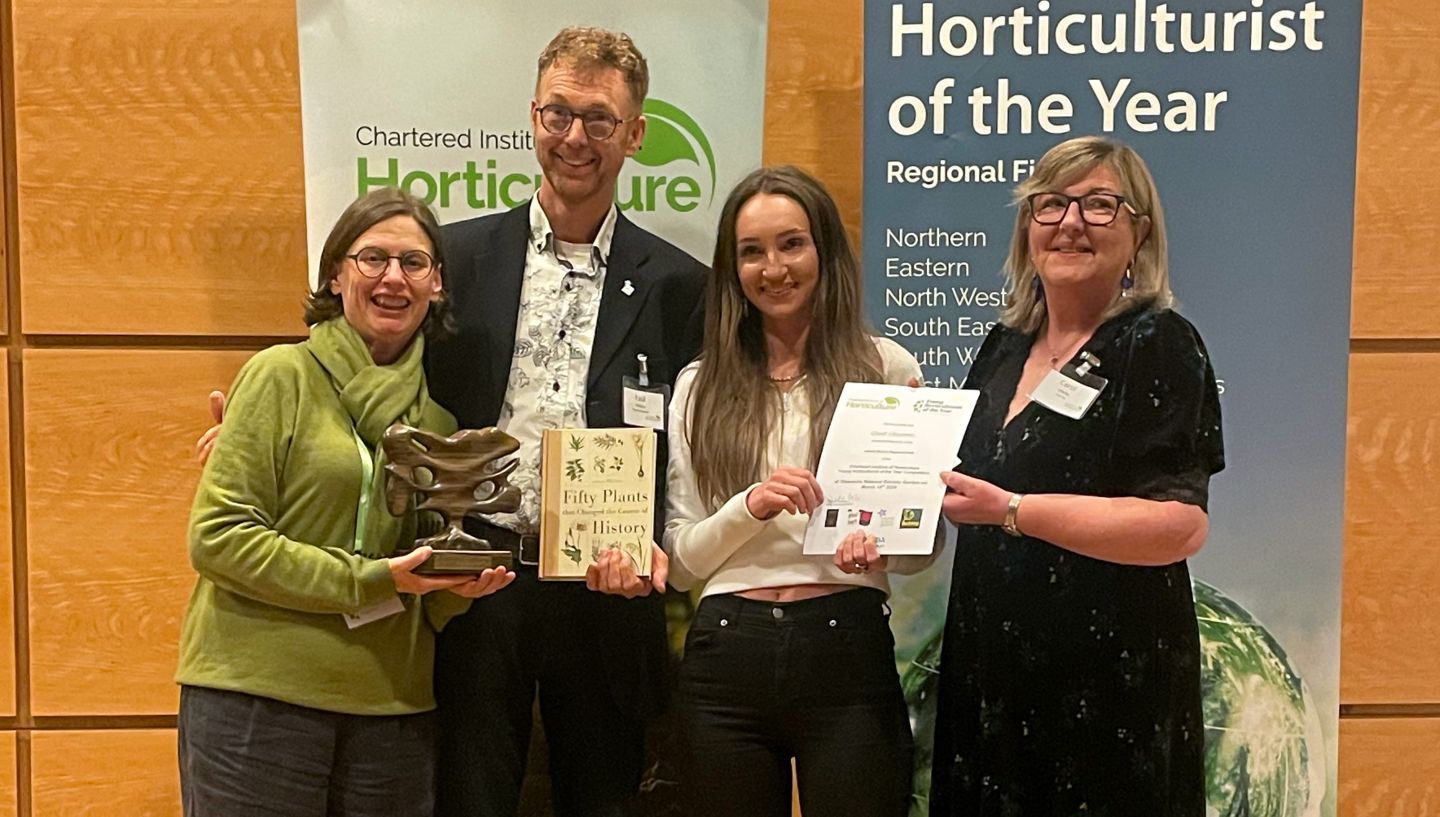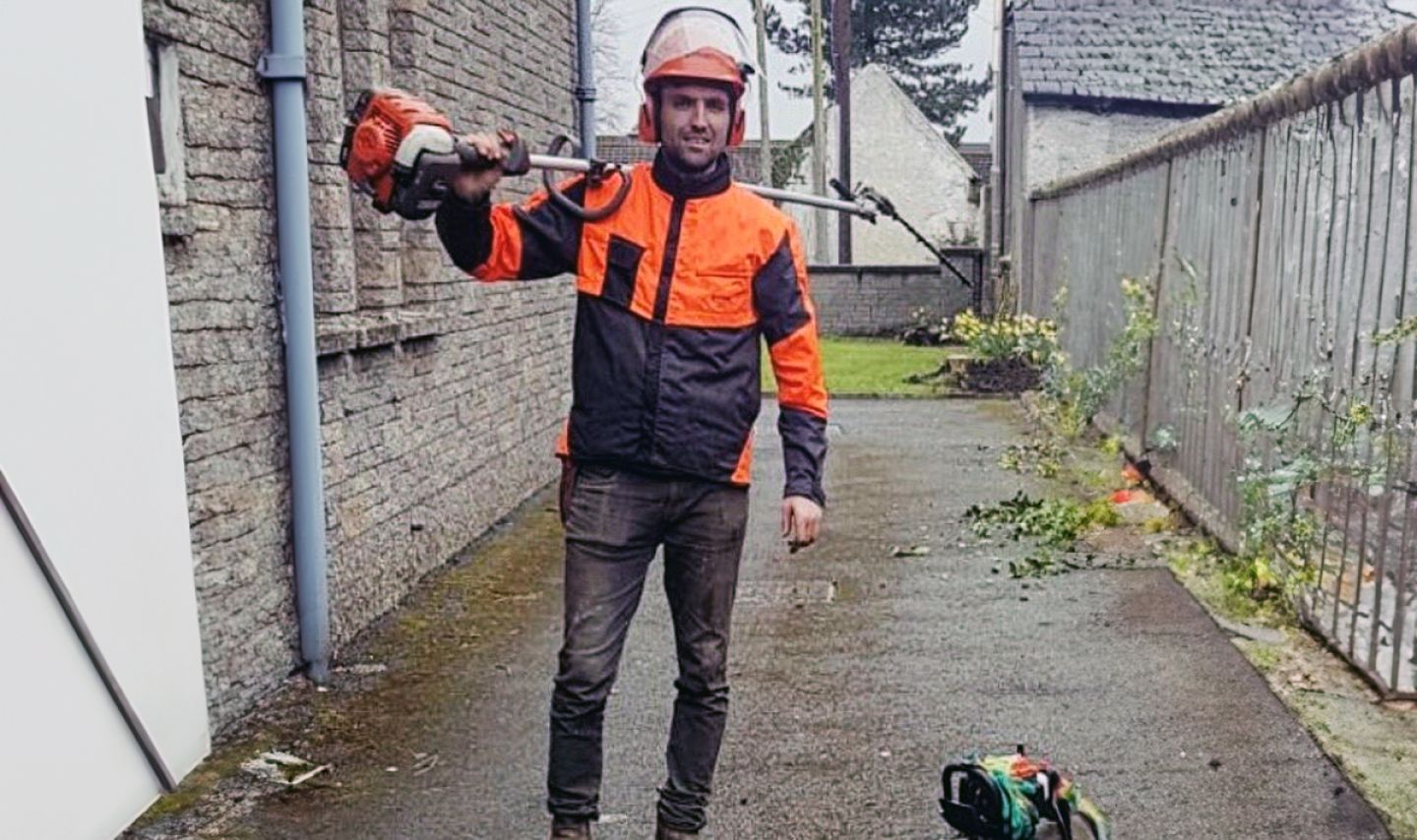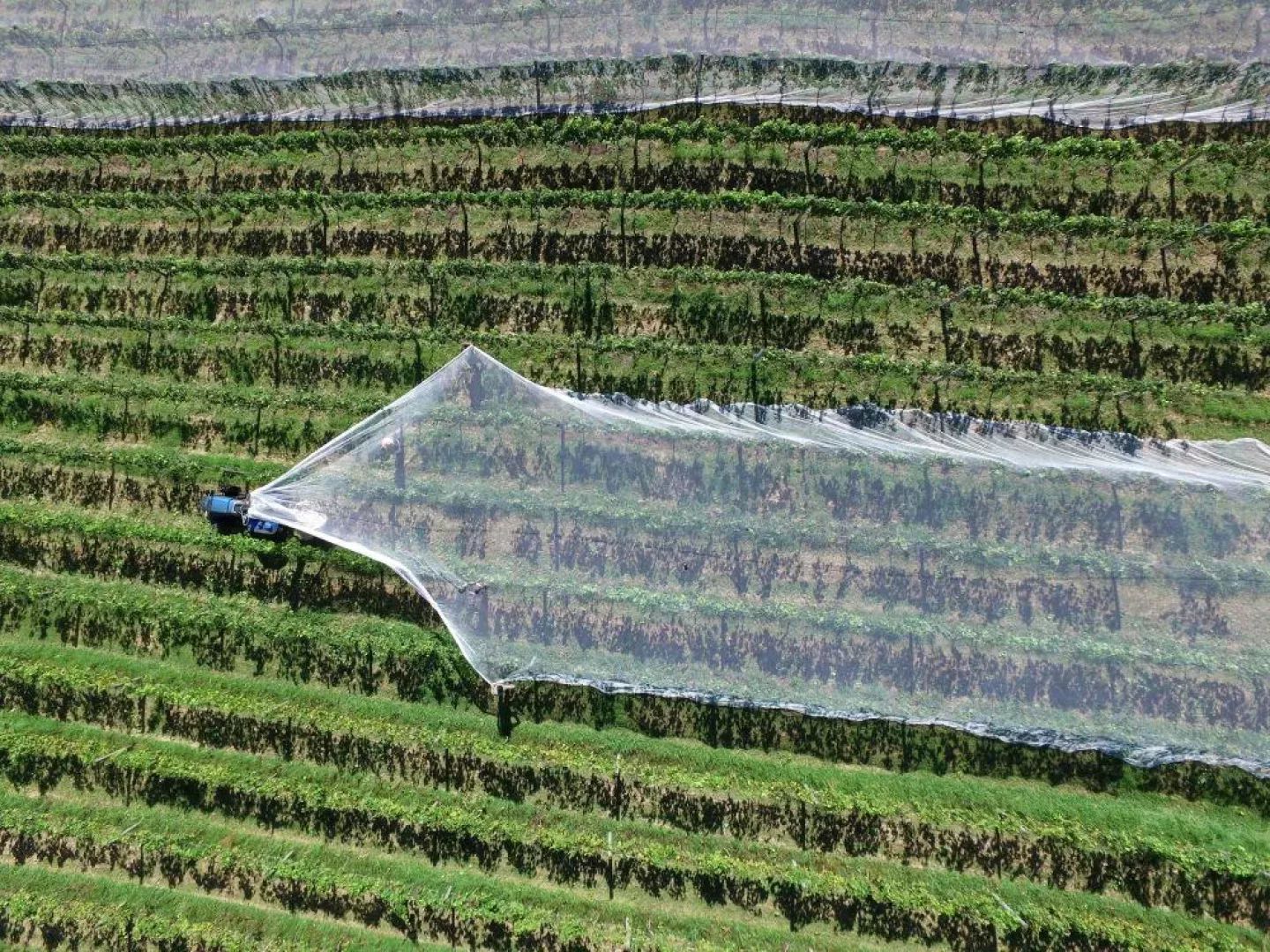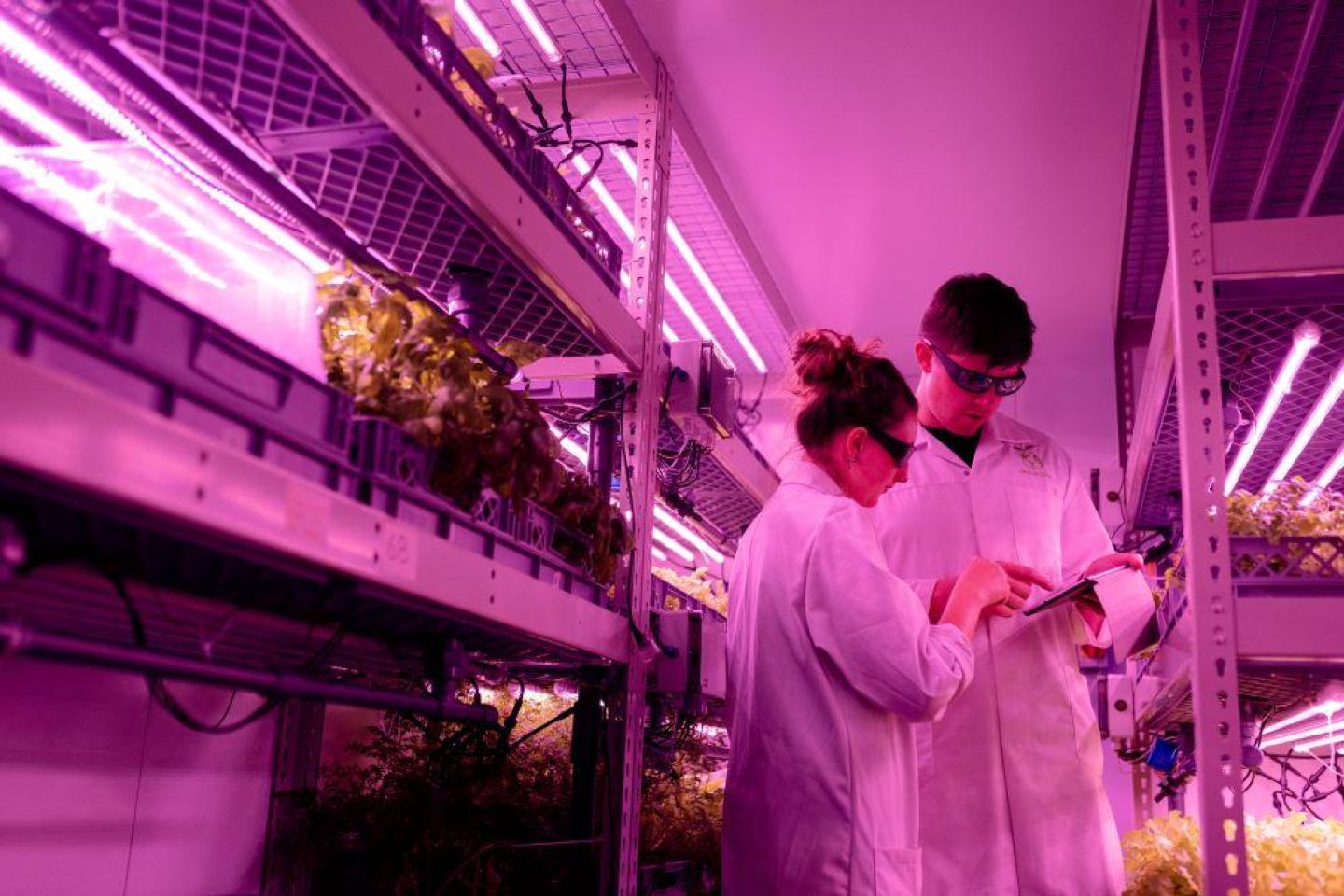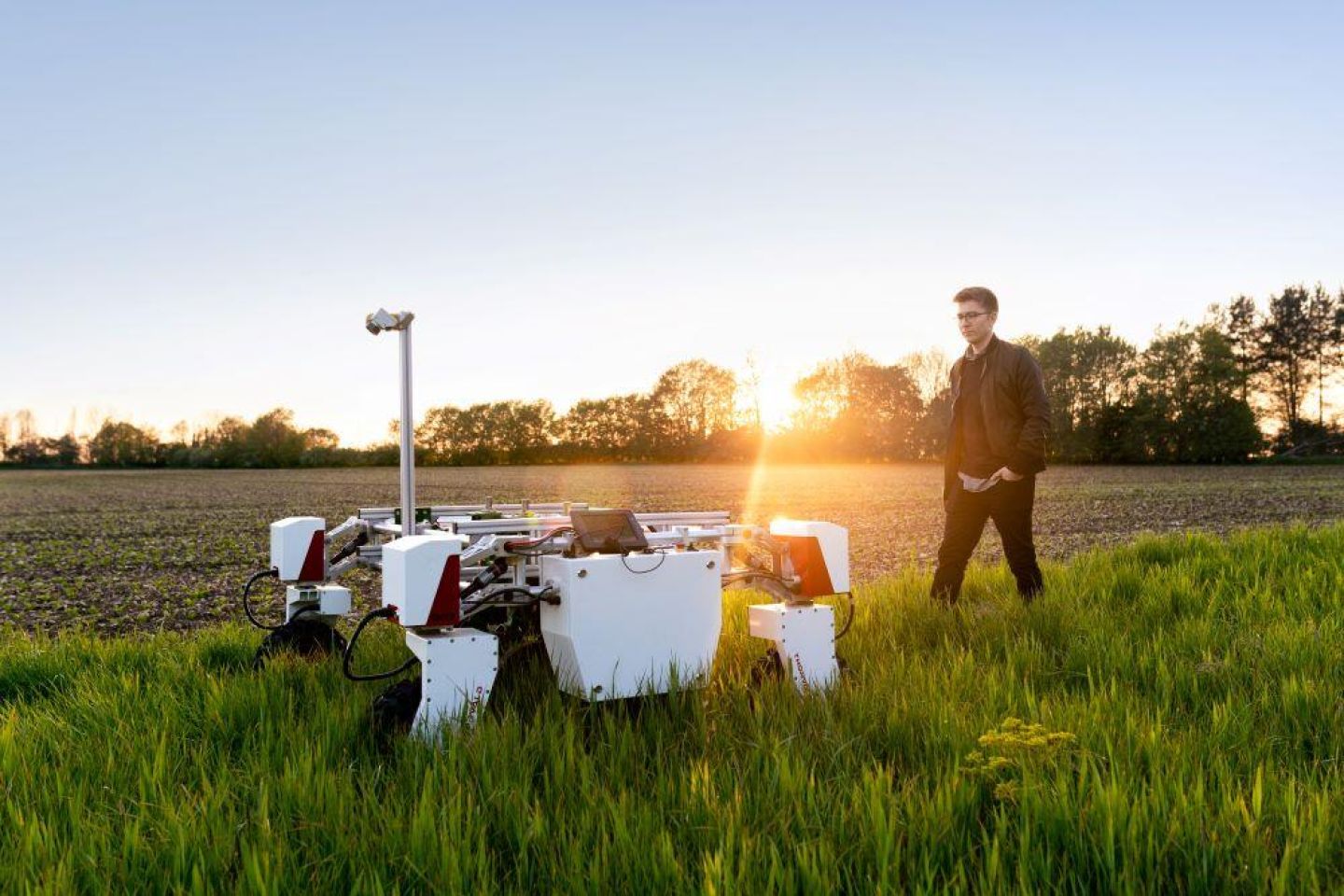Horticulture (Kildalton College)

What is Horticulture?
Horticulture plays a central role in creating, maintaining, and enhancing the landscapes we live in. Pretty, pollinator-friendly floral displays are the backdrop in our thriving tourist towns. The pristine golf courses and pitches we compete on, and the beautiful parks, gardens, and urban landscapes we relax in would not be possible without the skills and knowledge of Ireland’s trained horticulturists. Equally, a year-round sustainable supply of fruit, vegetables and flowers is only achieved because Hort scientists and producers make it so. There’s a role for our hort graduates along every step of the way. Horticulture is a diverse industry and career opportunities are wide-ranging from producing plants for garden centres, working on golf courses, or landscaping, right through to fruit and vegetable production.
What is the BSc in Horticulture course?
The SETU Waterford BSc. in Horticulture course is a full-time, 3-year course designed to train professional horticulturists. Our students study STEM-rich horticulture modules, undertake work placement, gain business acumen, and graduate from the course having specialised in two major streams of hort study. We place great importance on experiencing the industry and making contacts; our students learn about their industry throughout the whole 3 years by taking frequent field trips to the best horticulture businesses. We recognise that Horticulture students especially enjoy the hands-on work involved in horticulture therefore we ensure that classroom and lab work is balanced with plenty of practical work to practise the skills learned during the course.
The Hort course is run in conjunction with Teagasc. Students can choose to study in one of two locations. Please note, that separate CAO codes are used for the two locations.
Location 1: Study in Waterford, at SETU Waterford and in Teagasc, Kildalton College. Course code for the Kildalton course is SE506.
Location 2: Study in Dublin, at the Teagasc College in the National Botanic Gardens. Course code for the Botanics course is SE507.
Kildalton College - course code SE506
Students on the SE506 course study both at SETU Waterford and at Kildalton College, Piltown, Co. Kilkenny. Our collaboration with Kildalton College, Piltown ensures students benefit from the skills and expertise of Teagasc staff. The dual-campus course facilitates study of laboratory-based scientific modules and business modules on SETU Waterford's main campus in Waterford City, while Hort-based modules are delivered in Kildalton College where you have access to extensive glasshouses, orchards, grounds and Hort machinery. A free bus service operates between Kildalton and SETU Waterford.
BSc in Horticulture placement
One of the unique features of the BSc. in Horticulture in SETU Waterford is that semester 2 of year 2 is spent on paid work experience with a registered employer in Ireland, or abroad. This 15-week work placement is an opportunity for students to practise the key horticultural skills learned in college and to also to work as part of a team in a busy horticultural business.
We ensure all our placements are student-focused; we endeavour to place students in thriving and busy work placements where they will grow in confidence, and develop a wide skills base to enhance their employment prospects upon graduation. Teagasc has links with Ohio State Horticulture Internship Programme, and every year some of SETU Waterford’s Hort students travel abroad on work placements in the UK, Europe and the USA. Many students who complete their work placements abroad are employed beyond the 15-week minimum period therefore spend the summer working with their hosts and usually earn the standard industry wage for that position. In recent years, Summerhill Landscapes in New York has been one such employer who kindly sponsored our students to extend their working visas in the USA. In practical terms, this means that such students are in college from September to December of year 2, but spent the following January to late August with their work placement hosts.
Horticulture for Small Holders, the ‘Green Cert’, and Spraying Certification with DAFM.
As well as horticultural knowledge, graduates of the course are deemed to have achieved the equivalent of the ‘Green Cert’ for Stamp Duty exemption for land transfer for young farmers. ‘Green Cert’ status is incredibly useful when our students realise the potential returns when they have access to a few acres, and the key horticultural and business knowledge required to capitalise on that smallholding. In addition, graduates of the course are eligible to apply for ‘Professional User/Sprayer Operators’ Certification (with the DAFM) which is a necessity for use of plant protection products.
BSc in Hort Student Handbook 2023-2024 (Kildalton College)
Follow us on social media:
What will I study during the course?
Many horticulturists are managers or self-employed therefore need business acumen as well as horticultural skills; we have designed the course with this in mind.
Year 1
Introduces you to the diverse world of horticulture where the focus is on learning core horticultural skills and the science which underpins them. Our students are provided with training in plant cultivation and knowledge and they learn about the influence of the many environmental conditions required to grow plants. You will learn how to germinate and grow seedlings, take cuttings and propagate them, and also learn a range of horticultural skills such as pruning, training and planting of trees, shrubs, perennials, bulbs, and bedding plants. Study of soil science ensures a good understanding of the role and importance of growing substrates, and you will also learn about plant pests, diseases, and weeds. In addition, you will receive instruction and get plenty of practice time on many types of horticulture machinery and tools. Learning how to work safely with this machinery, troubleshoot, and carry out preventative maintenance are important work skills. You also will learn about laws regulating the use of chemicals in the environment including how to calibrate knapsack equipment, apply sprays correctly, and how to handle, store and dispose of plant protection products to ensure that the environment is protected.
Year 2
Along with a semester-long work placement, you will specialise in a specific area of horticulture by selecting one major elective from the following list: Landscape Design, Nursery Stock Production, Sustainable Food Production, Sportsturf Science, and Lab Skills for Plant Micropropagation. You will also learn how to maintain and enhance biodiversity in horticultural settings, and further the plant knowledge gained in year 1 to a stage where you can confidently select the right plant, for the right place.
Year 3
You will research a horticulture subject of personal interest using our extensive research facilities and expertise, while our hort-themed business modules ensure you have the entrepreneurial knowledge to further enhance your employment prospects. You can revisit the major module list from year 2 and choose an additional major stream of study. In the final semester, you complete your research project and an Arboriculture module will teach you to care for amenity trees. In the last semester, you can choose two minor electives from a comprehensive list which includes: Garden Centre Operation and Management, Greenkeeping, Fruit Production, Social and Therapeutic Horticulture, Computer Aided Design, Floristry, and Beekeeping and Pollination Studies.
Year 1
| Semester 1 | Semester 2 |
|---|---|
| Communication Skills and Computer Applications | Chemistry for Land Scientists |
| Horticulture Skills 1 | Horticulture Building Construction |
| Plant Biology | Horticultural Mechanisation and Safety |
| Plant Knowledge 1 | Horticulture Skills 2 |
| Plant Protection | Plant Knowledge 2 |
| Soil and Growing Media | Plant Propagation |
Year 2
| Semester 3 | Semester 4 |
|---|---|
| Biodiversity and Horticulture | Placement |
| Managaing your Business | |
| Garden Management and Plant Selection | |
| Choose one of the following Major electives: | |
| *Sustainable Food Production | |
| *Landscape Design | |
| *Nursery Stock Production | |
| *Sportsturf Science | |
| *Lab Skills for Plant Micro-Propagation (Waterford Only) | |
| * = elective module | |
| Electives are run subject to class sizes and timetable constraints. Some electives require prerequisites | Transfer students who have already undertaken placement as part of their previously completed qualification, will be required to complete 6 other modules. |
Year 3
| Semester 5 | Semester 6 |
|---|---|
| Horticulture Sales and Marketing | Arboriculture |
| Introduction to Scientific Writing and Data Analysis | Horticulture Project and Seminar |
| Financial Analysis for your business | Law for Horticulturists |
| People Management | Tax for Horticulture |
| Choose one of the following electives (must be different from the choice made in year 2): | *Field Crop Prodution |
| *Sustainable Food Production | *Garden Centre Operations |
| *Landscape Design | *Greenkeeping |
| *Nursery Stock Production | *Landscape Design Advanced |
| *Sportsturf Science | *Plants and Society |
| *Lab Skills for Plant Micro-Propagation (Waterford Only) | *Beekeeping and Pollination Studies |
| *Computer Aided Design | |
| *Interior Landscaping and Floristry | |
| * = elective module | *Protected Crop Production |
| Electives are run subject to class sizes and timetable constraints. Some electives require prerequisites | *Social and Therapeutic Horticulture |
Leaving Cert: Minimum entry requirements for BSc in Horticulture:
5 subjects: O6/H7
English or Irish: O6/H7
Mathematics: O6/H7
- Entry to Year 2 of the SETU BSc in Horticulture requires a full Level 5 award in Horticulture (The Certificate in Horticulture with the course code 5M2586), and also a full Level 6 Award in Horticulture (The Advanced Certificate in Horticulture with the course code 6M4334). One of these awards must have been at merit level overall for entry to the degree. Entry is also subject to applicants completing a short bridging studies component.
- Students who have completed the old National Diploma or Certificate in Horticulture under the aegis of the Department of Agriculture, ACOT or Teagasc can apply to transfer into Year 3.
Advanced and Equivalent Entry for BSc in Horticulture:
Students who complete this level 7 degree programme can choose either to graduate after three years or progress on to a related level 8 degree.
What jobs are available to horticulture graduates?
The Horticulture industry is diverse and vibrant and demands a constant supply of trained, skilled, and knowledgeable Horticulturists. In a 2016 survey of our graduates of the previous 5 years, 88% of respondents secured full-time employment within 3 months of finishing the BSc. in Horticulture. Having graduated with more than two major streams of study, many of our graduates have multi-stream businesses of their own. For instance, some of our graduate entrepreneurs run businesses which have a nursery and garden centre on site, while they also provide landscape design and floristry services providing income streams in all seasons, and true variety in their working life.
The following are just a few positions in which our graduates are currently employed:
- Greenkeeper - maintaining and building golf courses, sports fields, and stadia
- Stadium Playing Pitch Maintenance Supervisor
- Nursery Stock Producer - producing trees, bedding plants, shrubs, and perennials for the horticulture industry
- Craft Gardener in public parks, private or heritage gardens
- Self-Employed Landscape Building Contractor
- Independent Landscape Designer
- Garden Maintenance Contractor
- Food Producers (from smallholders producing high value speciality crops to graduates who manage multiacre glasshouse complexes producing fruit and vegetables for national and international supermarket chains)
- Garden Centre Assistant, Owner or Manager
- Florist / Interior Landscaper
- Horticulture Teacher/Lecturer
- Horticulture Therapist
- Mushroom Growers
- Horticulture Writers and Journalists
- Horticulture/Plant Science Researcher working on problems in plant science, pathology, or plant/insect interactions
- Tree Surgeon
- Vegetable Farmer
- Kitchen Garden Gardener
- Plant Hunter
- Horticulture Technician
- Landscape Contractor
- Head Gardener
Follow on study for BSc in Horticulture graduates:
- SE522 - BSc (Hons) in Land Management in Horticulture
What jobs are available to horticulture graduates?
The Horticulture industry is diverse and vibrant and demands a constant supply of trained, skilled, and knowledgeable Horticulturists. In a 2016 survey of our graduates of the previous 5 years, 88% of respondents secured full-time employment within 3 months of finishing the BSc. in Horticulture. Having graduated with more than two major streams of study, many of our graduates have multi-stream businesses of their own. For instance, some of our graduate entrepreneurs run businesses which have a nursery and garden centre on site, while they also provide landscape design and floristry services providing income streams in all seasons, and true variety in their working life.
The following are just a few positions in which our graduates are currently employed:
- Greenkeeper - maintaining and building golf courses, sports fields, and stadia
- Stadium Playing Pitch Maintenance Supervisor
- Nursery Stock Producer - producing trees, bedding plants, shrubs, and perennials for the horticulture industry
- Craft Gardener in public parks, private or heritage gardens
- Self-Employed Landscape Building Contractor
- Independent Landscape Designer
- Garden Maintenance Contractor
- Food Producers (from smallholders producing high value speciality crops to graduates who manage multiacre glasshouse complexes producing fruit and vegetables for national and international supermarket chains)
- Garden Centre Assistant, Owner or Manager
- Florist / Interior Landscaper
- Horticulture Teacher/Lecturer
- Horticulture Therapist
- Mushroom Growers
- Horticulture Writers and Journalists
- Horticulture/Plant Science Researcher working on problems in plant science, pathology, or plant/insect interactions
- Tree Surgeon
- Vegetable Farmer
- Kitchen Garden Gardener
- Plant Hunter
- Horticulture Technician
- Landscape Contractor
- Head Gardener
Completion of a level 8 programme will also enable students to undertake taught Masters programmes or Masters degrees by research at SETU Waterford or other third-level colleges.
Driving licence:
Although not essential, prospective students should obtain at least a learner driver permit, or driving licence for Class B or W vehicles before starting the course. This will allow students gain greater experience on a wider range of the excellent suite of machinery available in Kildalton College.
Equipment:
Students need to obtain the following equipment before starting the course.
- A sturdy pair of work boots or shoes with steel toecaps.
- Rain gear, work trousers with pockets, and a warm hat and gloves.
- A good quality pair of gardening gloves.
- A high visibility coat, or a high visibility singlet for over a coat is also required.
Health and Wellbeing:
By their nature, horticulture-related activities can often lead to scratches from thorns, etc. If worried about this, it is recommended that you consult with your medical practitioner regarding any health risks that might arise and precautions you should take (e.g. tetanus risk).
Stories
Related Courses
Course Leader

Dr Cara Daly
Lecturer & Programme Leader for the BSc in Horticulture (Kildalton College) & the BSc in Horticulture (National Botanic Gardens) -
Call: +35351302076
Email: [email protected]
Profile

